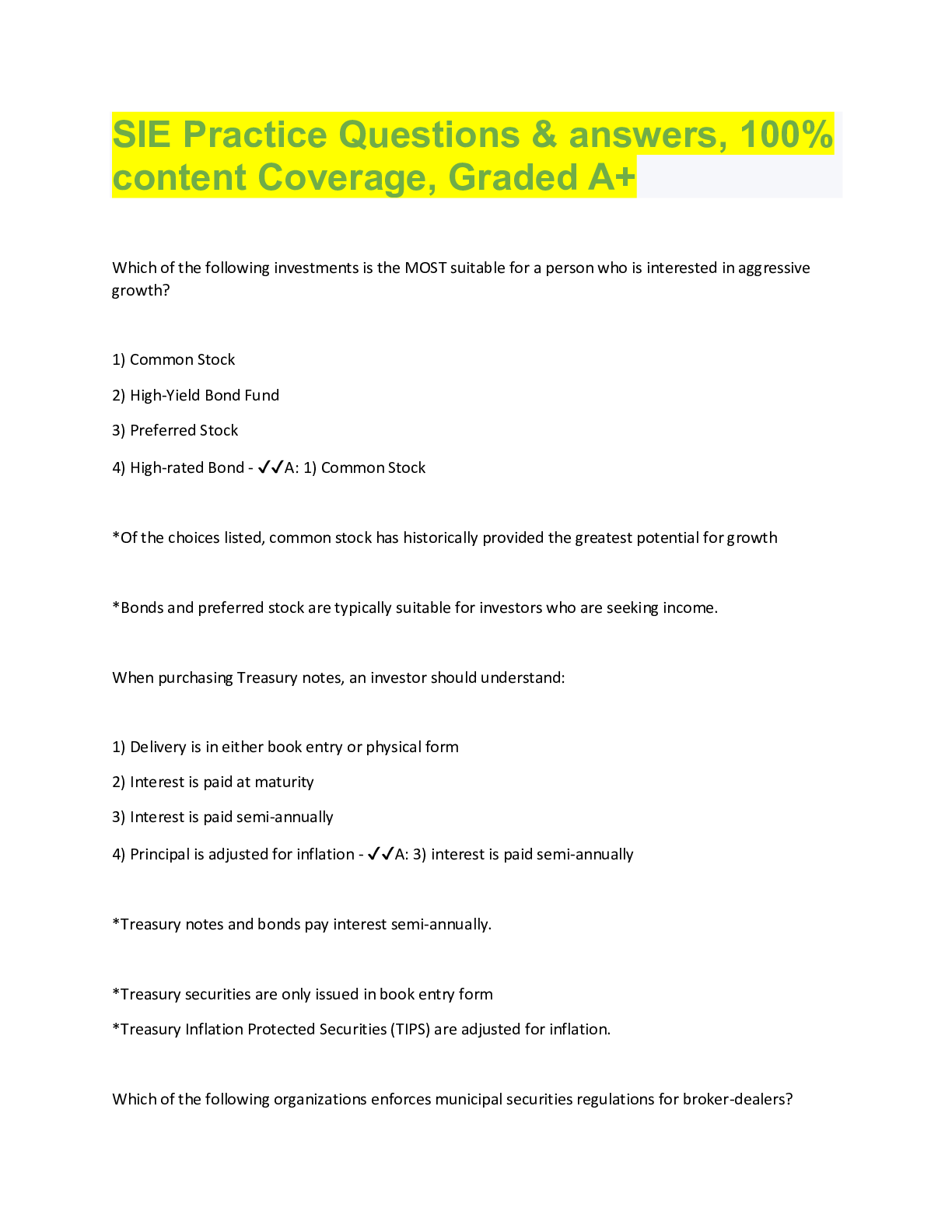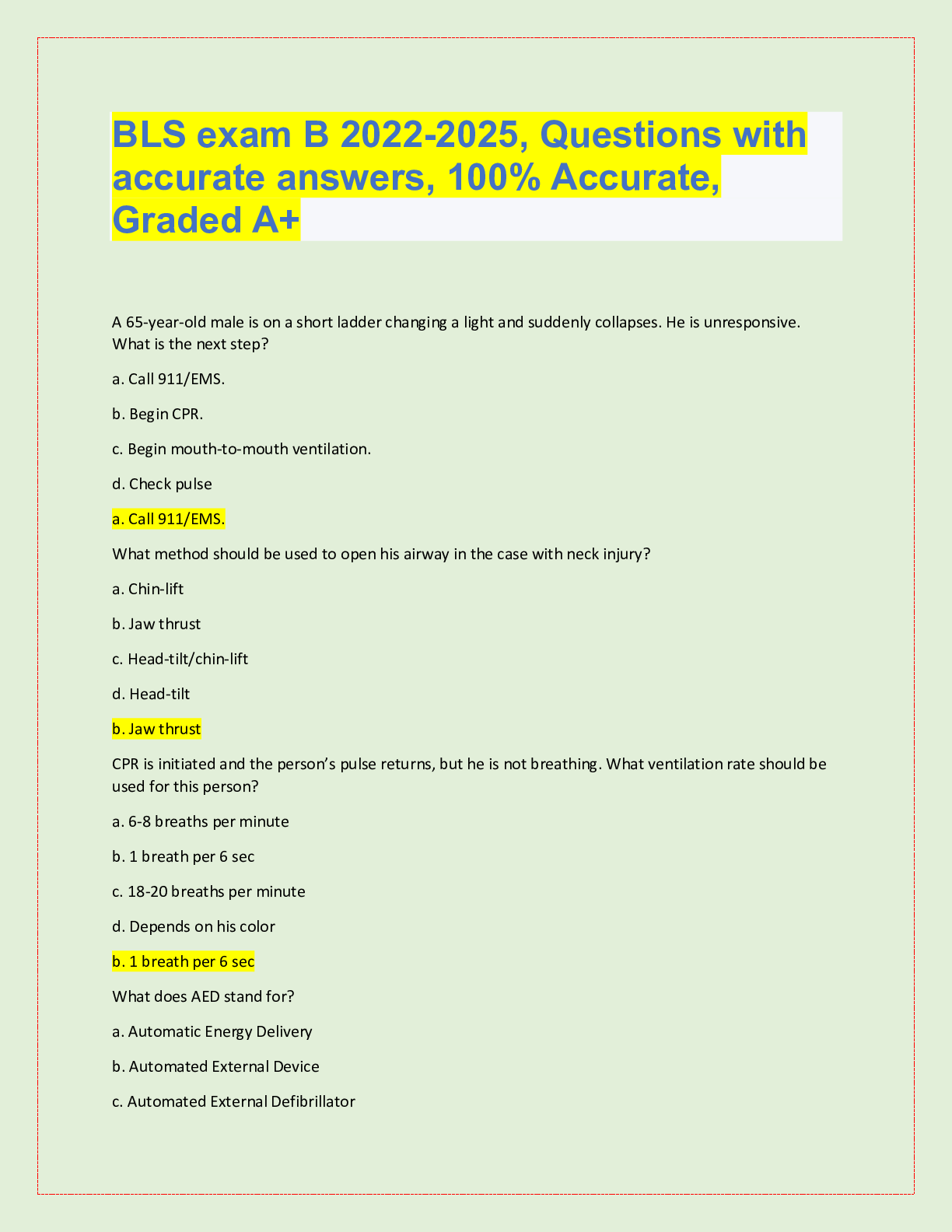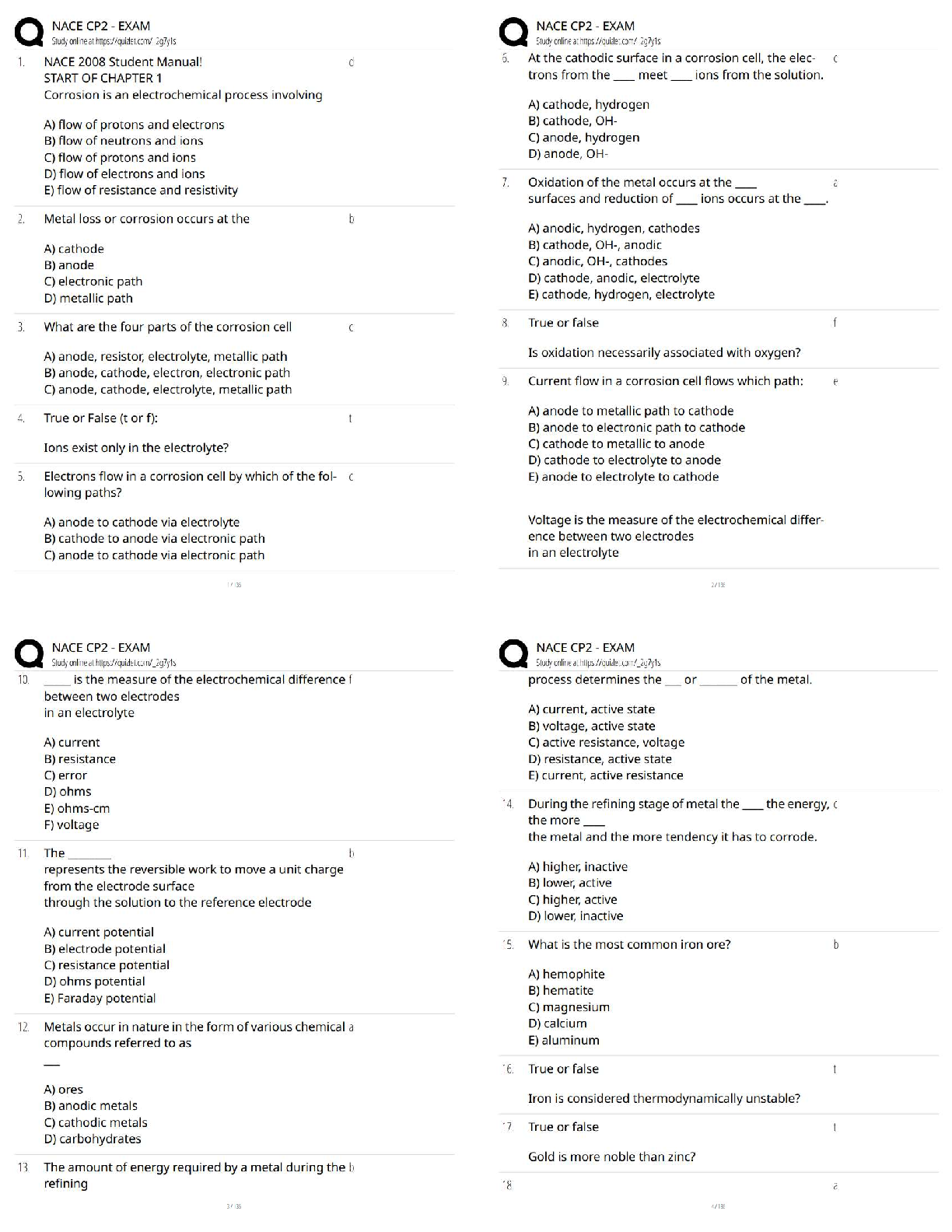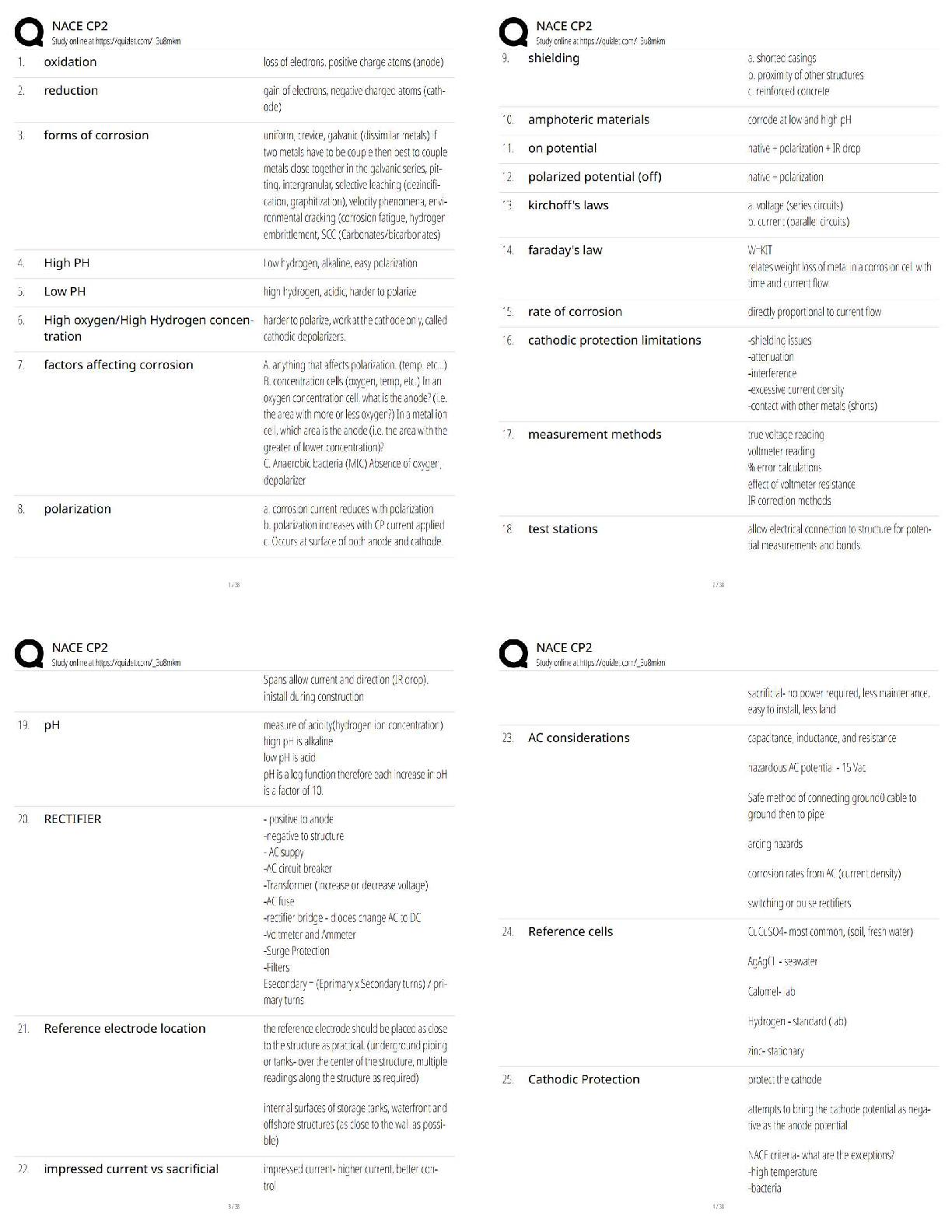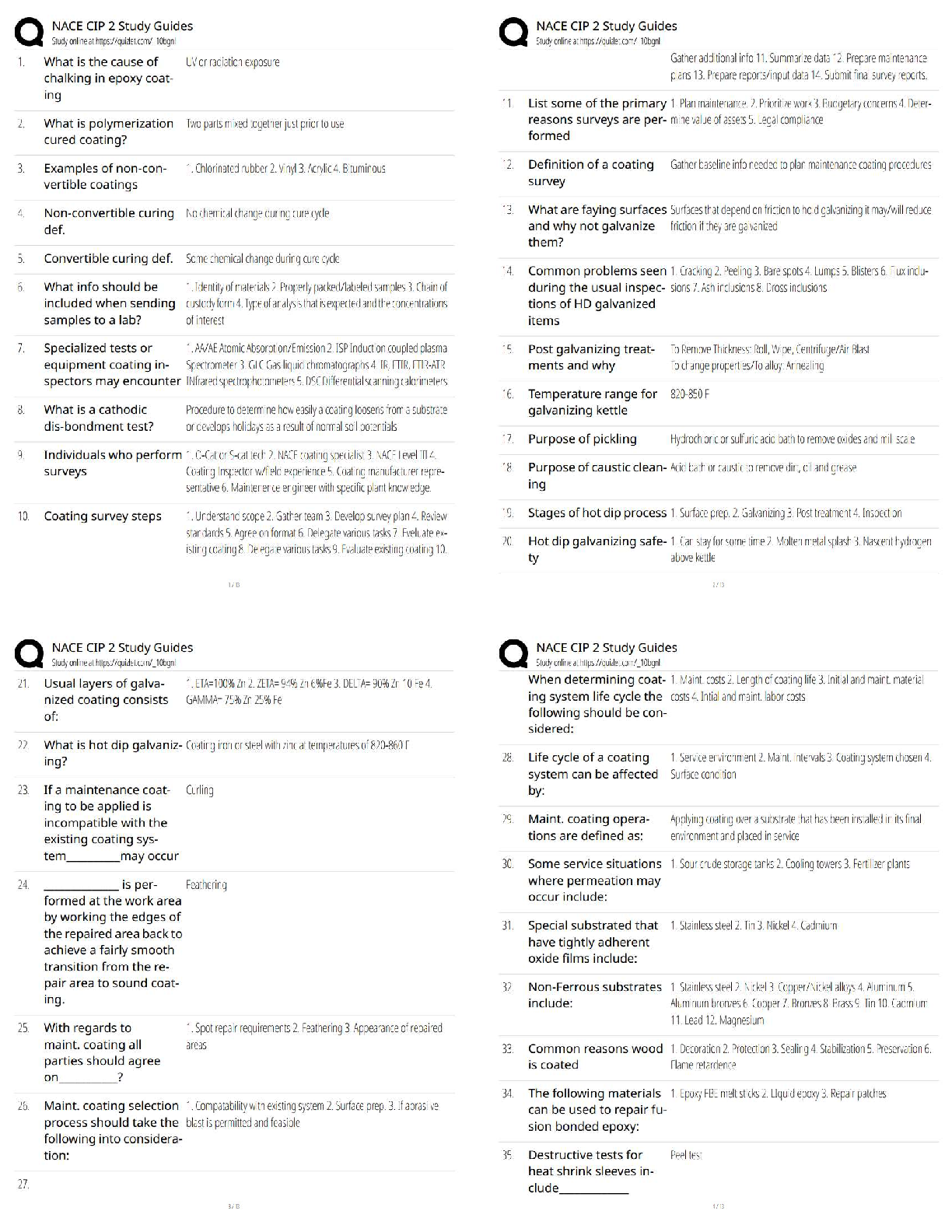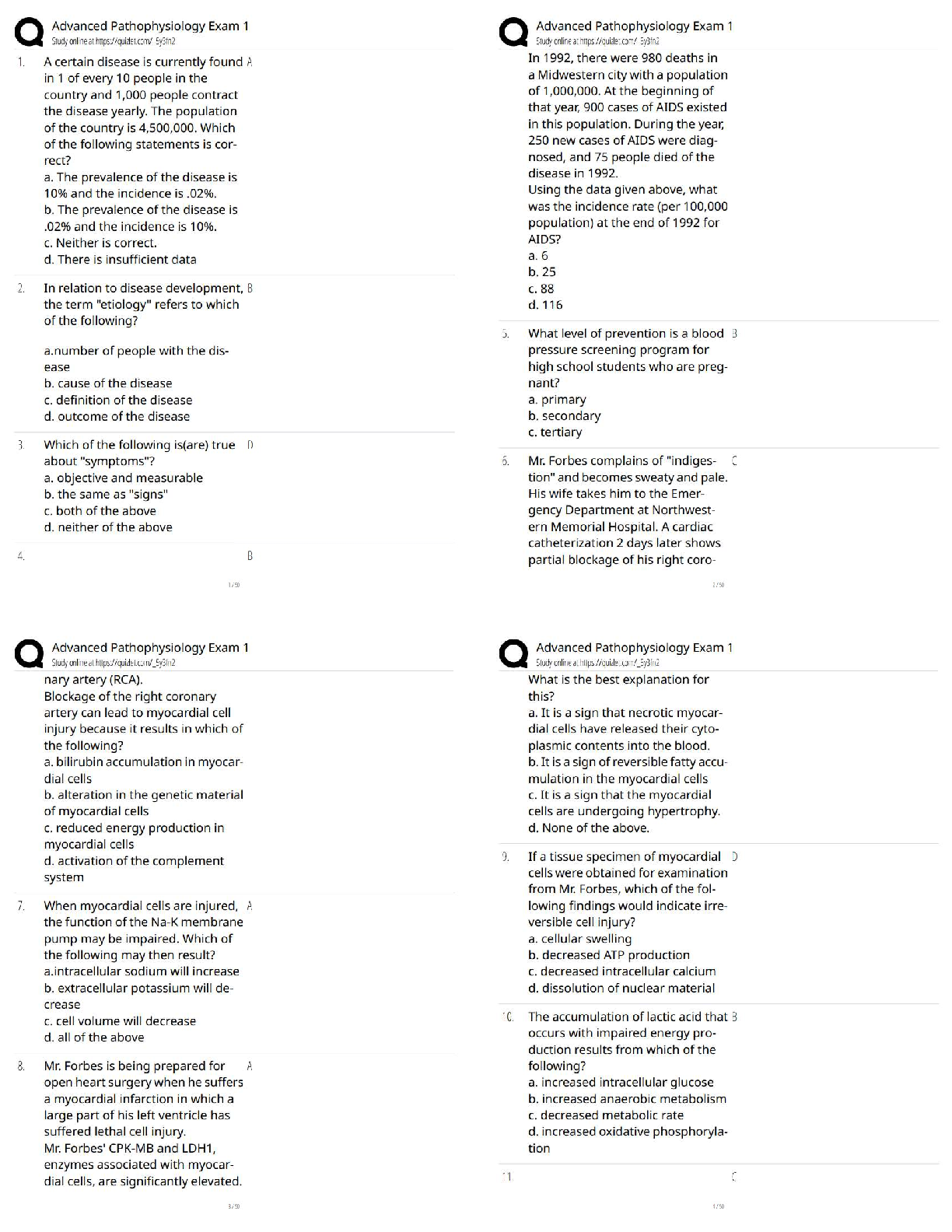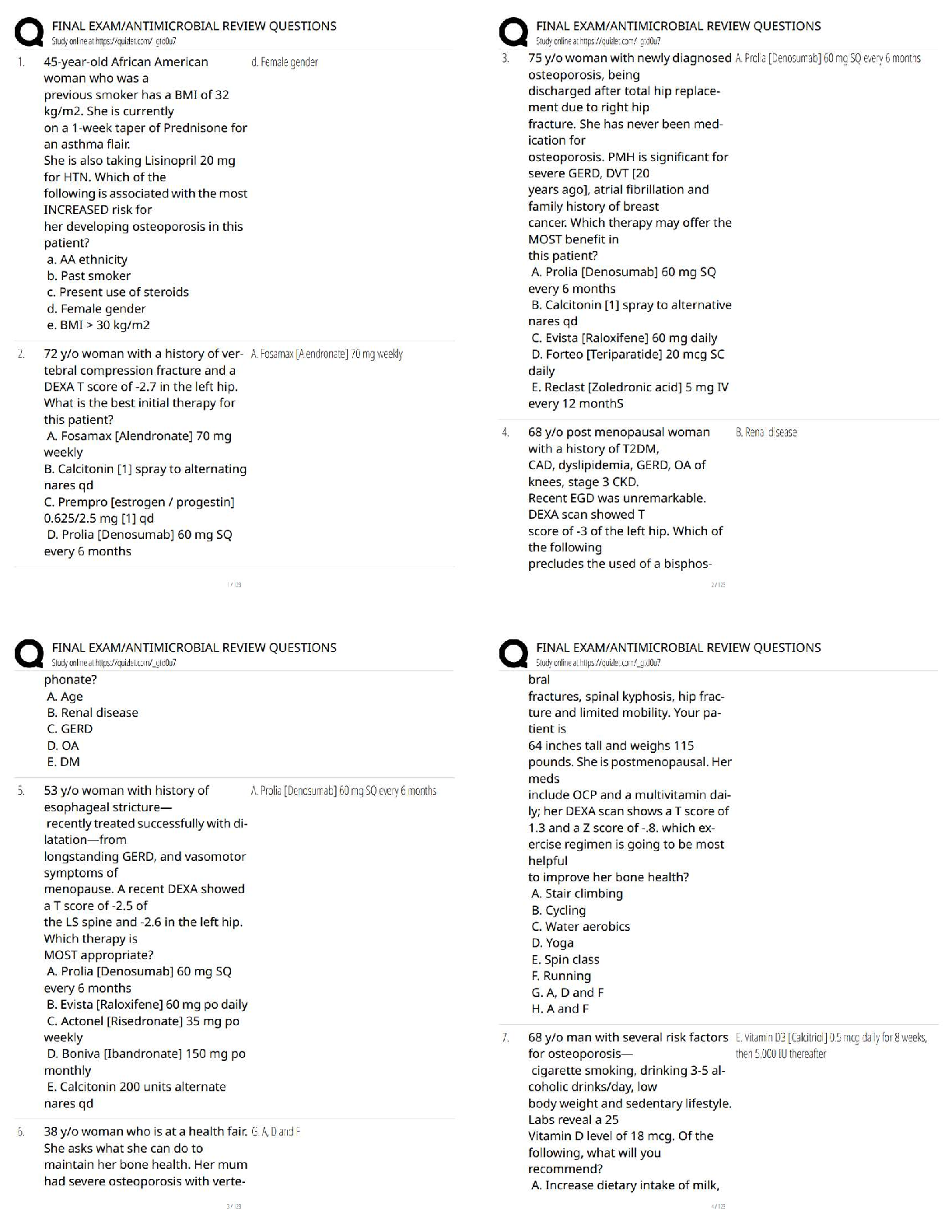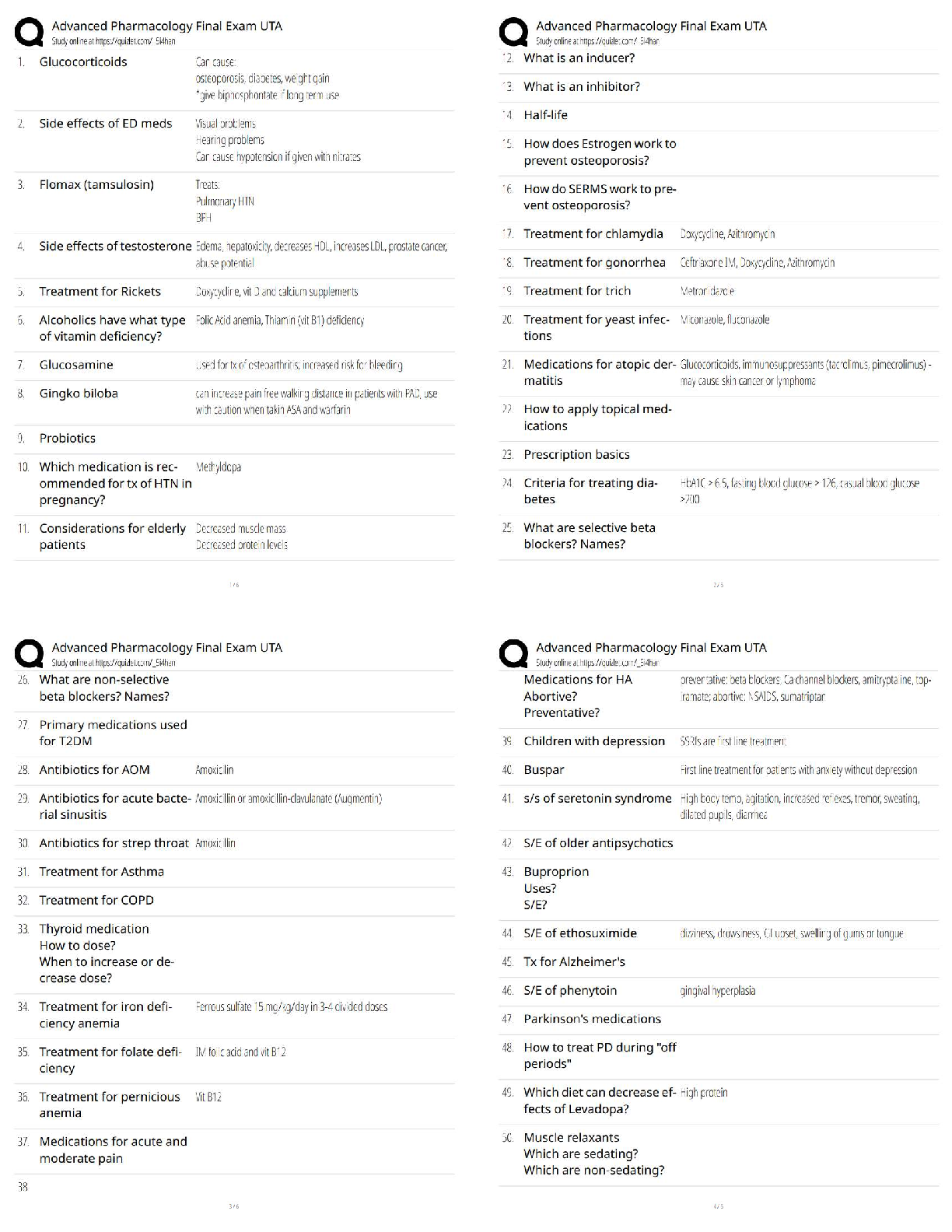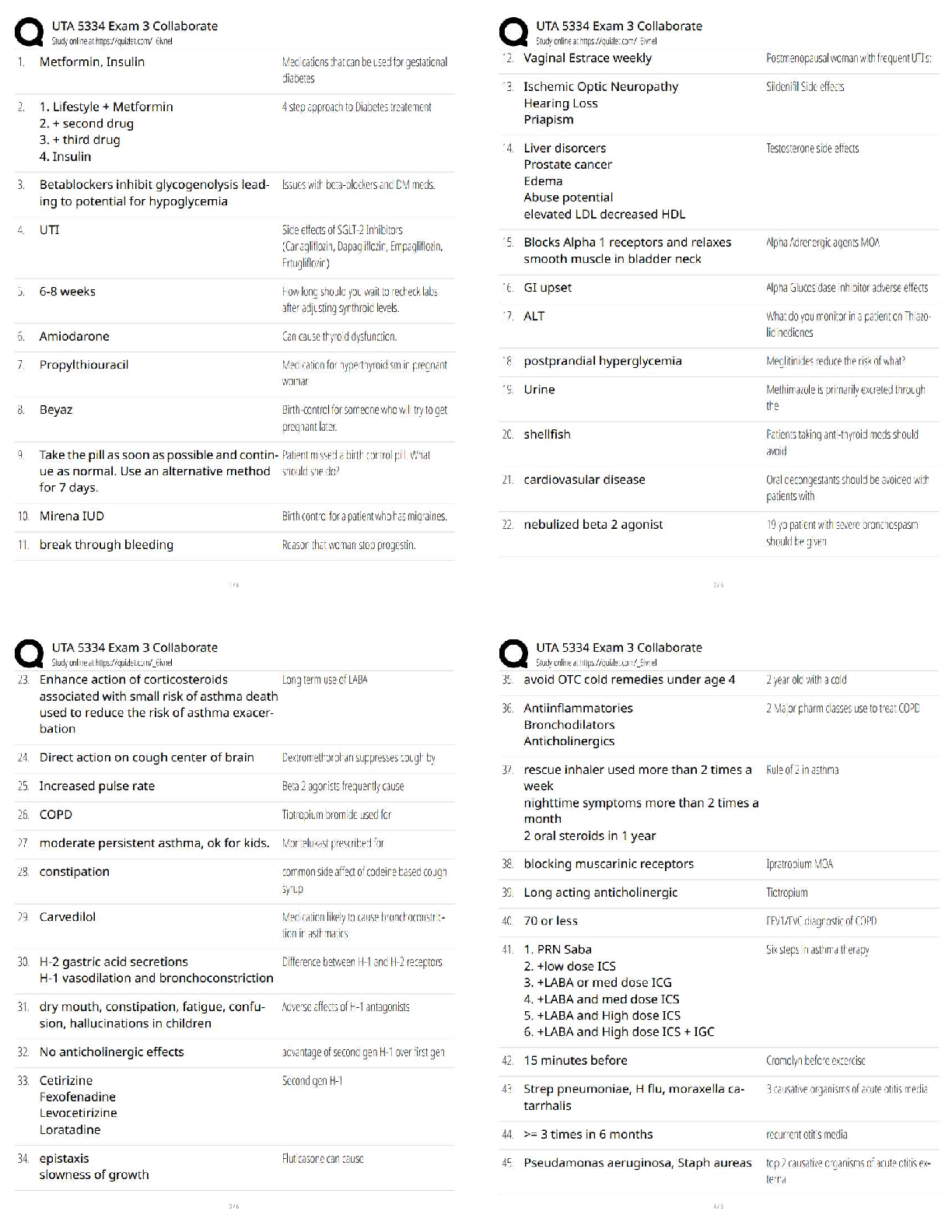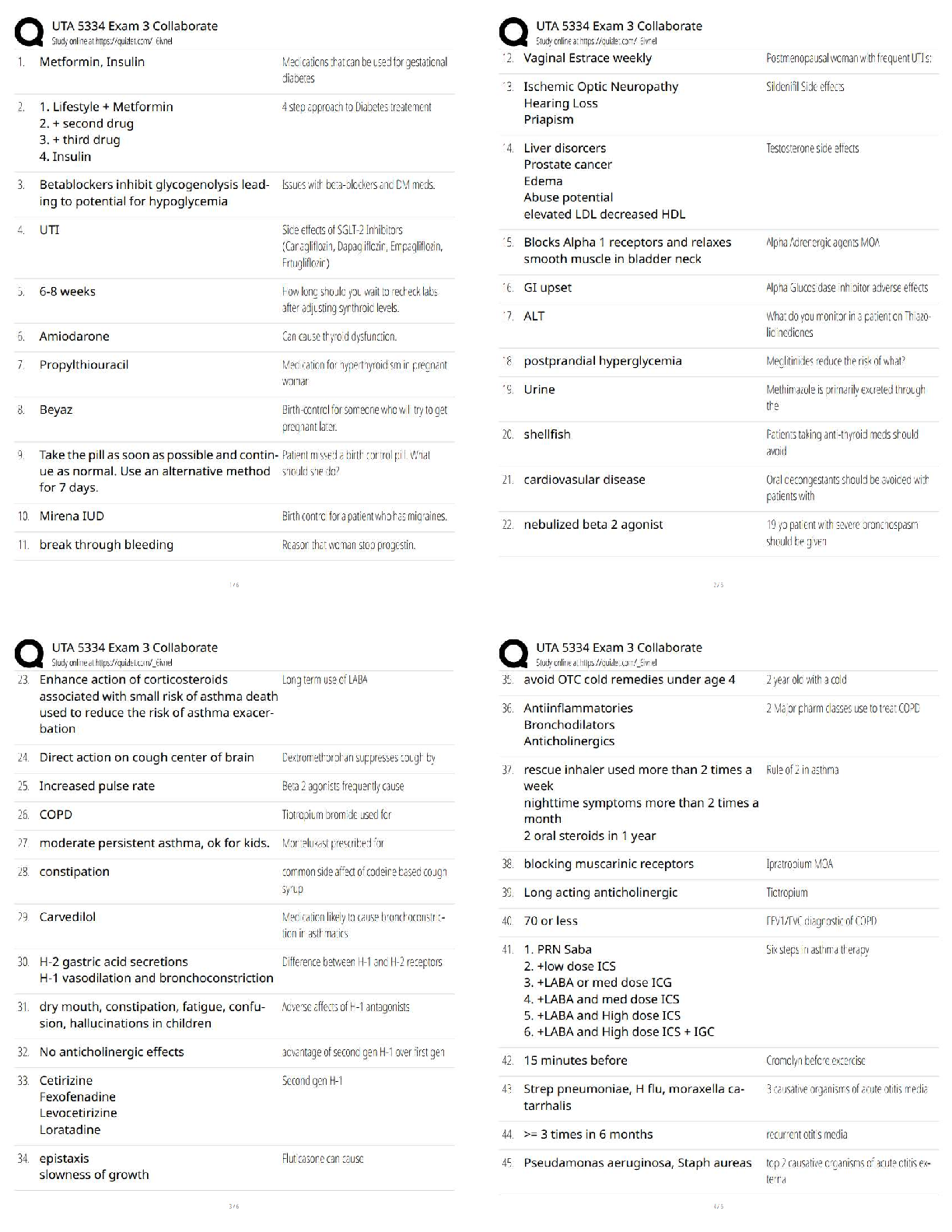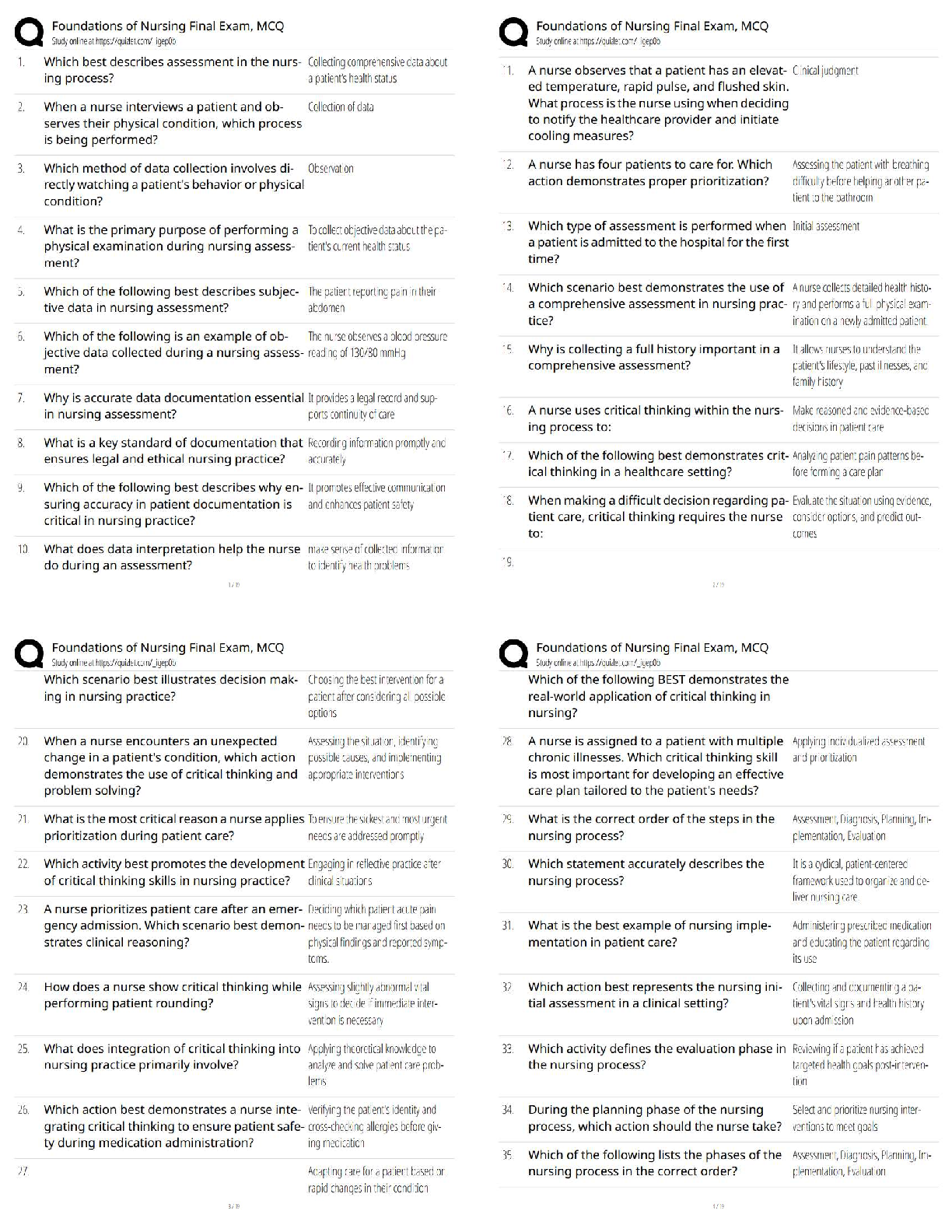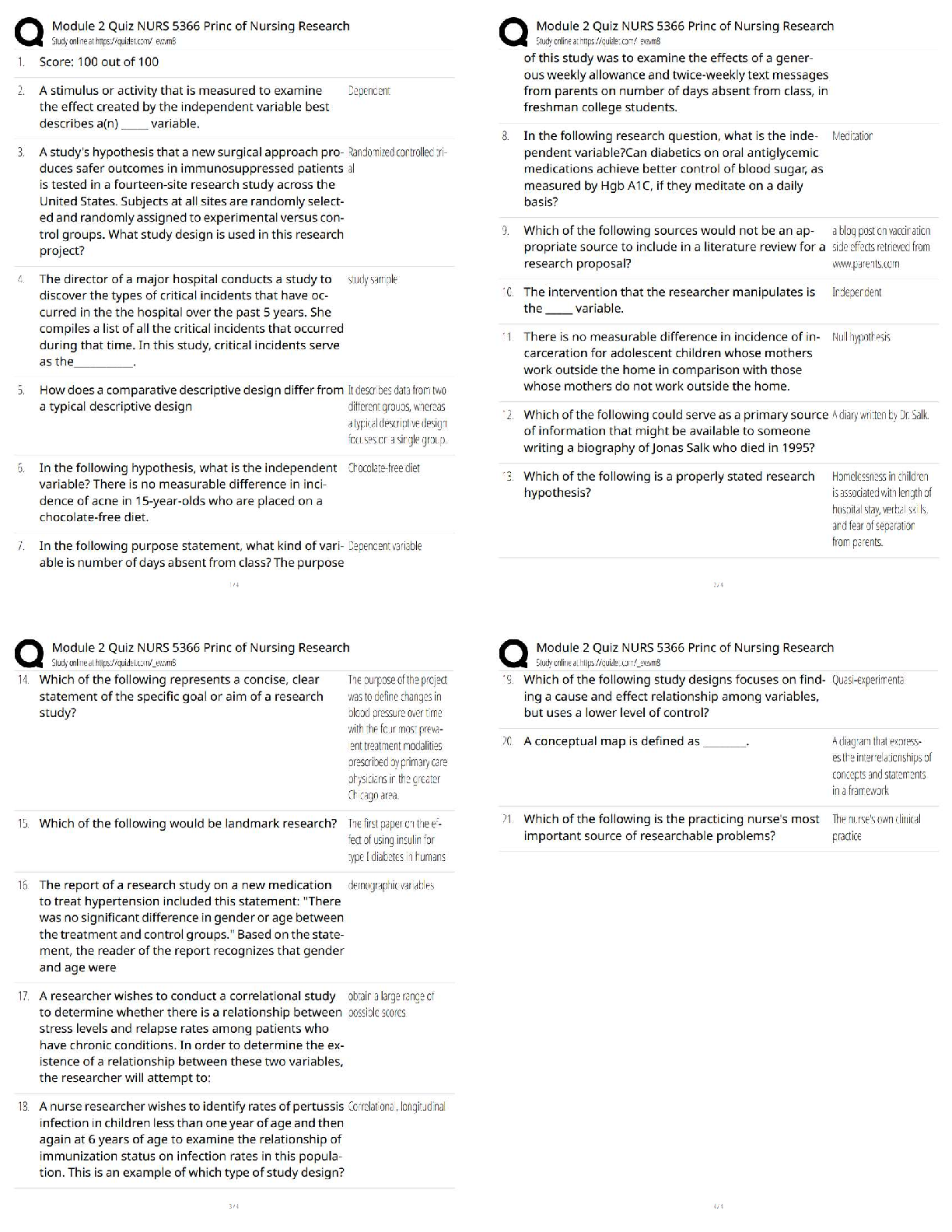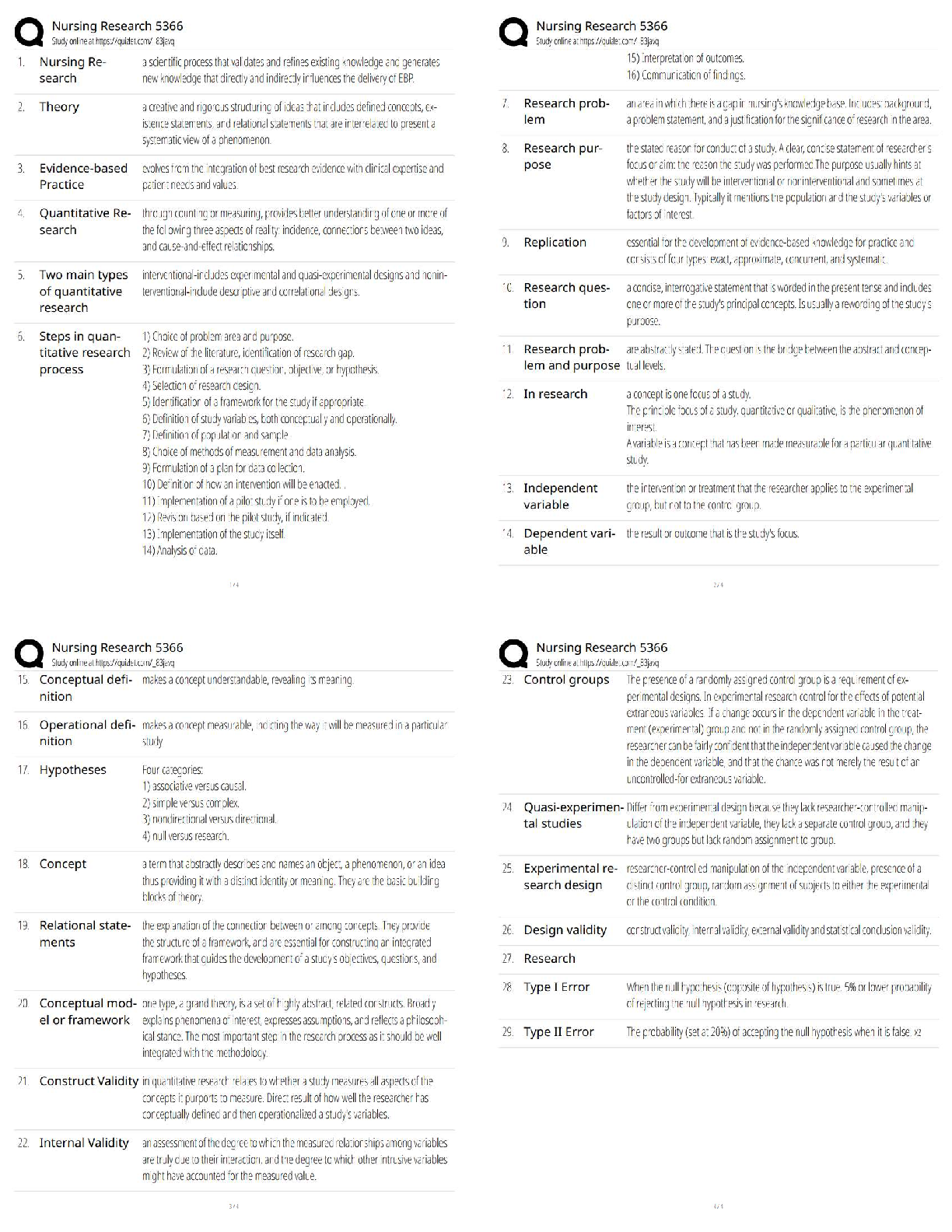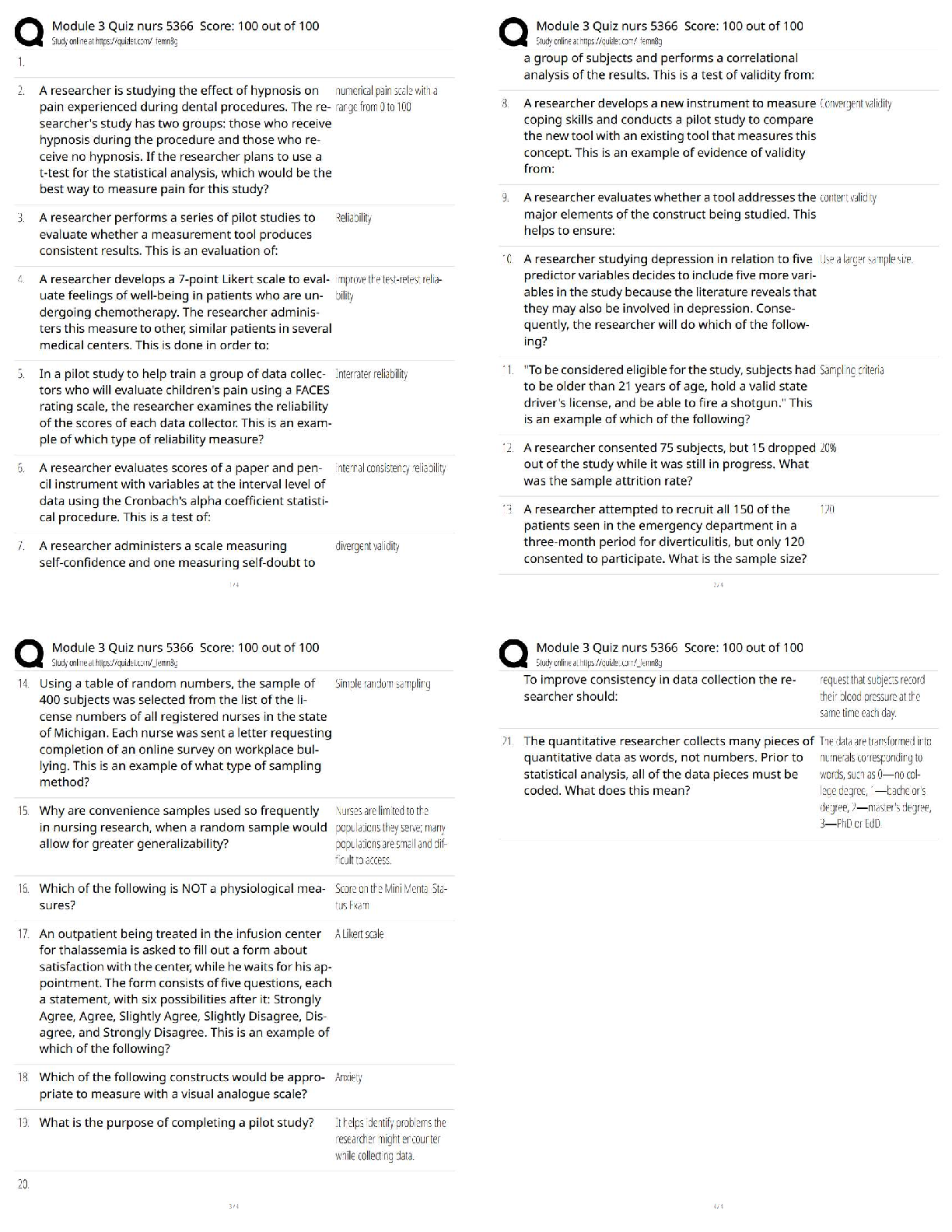SIE Practice Questions & answers, 100%
content Coverage, Graded A+
Which of the following investments is the MOST suitable for a person who is interested in aggressive
growth?
1) Common Stock
2) High-Yield Bond Fun
...
SIE Practice Questions & answers, 100%
content Coverage, Graded A+
Which of the following investments is the MOST suitable for a person who is interested in aggressive
growth?
1) Common Stock
2) High-Yield Bond Fund
3) Preferred Stock
4) High-rated Bond - ✔✔A: 1) Common Stock
*Of the choices listed, common stock has historically provided the greatest potential for growth
*Bonds and preferred stock are typically suitable for investors who are seeking income.
When purchasing Treasury notes, an investor should understand:
1) Delivery is in either book entry or physical form
2) Interest is paid at maturity
3) Interest is paid semi-annually
4) Principal is adjusted for inflation - ✔✔A: 3) interest is paid semi-annually
*Treasury notes and bonds pay interest semi-annually.
*Treasury securities are only issued in book entry form
*Treasury Inflation Protected Securities (TIPS) are adjusted for inflation.
Which of the following organizations enforces municipal securities regulations for broker-dealers?
1) The FRB
2) The FDIC
3) FINRA
4) The MSRB - ✔✔A: 3) FINRA
* Although the MSRB creates rules GOVERNING municipal securities broker-dealers, its rules are
ENFORCED by other regulatory bodies. The appropriate regulatory agencies are the:
The SEC or FINRA for broker-dealers
The comptroller of the currency for federal banks
The FRB for state banks that are members of the FRB
The FDIC for member banks of the FDIC
Which of the following statements is TRUE concerning electronic communication networks (ECNs)?
1) They can be used only by retail investors.
2) They can be used by investors who want to trade anonymously.
3) They can be used only by institutional investors.
4) They can be used by clients who don't want to use a broker-dealer. - ✔✔A: 2) ECNs can be used by
investors who want to trade anonymously
* can be used both by institutional & retail investors
* designed to anonymously match buyers w sellers
* immediate automatic execution if a matching buy or sell order can be found on the system
*
Electronic Communication Networks (ECN's) - ✔✔Electronic communication networks (ECNs) are
securities trading systems that are designed to anonymously match buyers with sellers. These systems
can be used by both institutional and retail investors. One of the benefits of their use is immediate
automatic execution if a matching buy or sell order can be found on the system. ECNs DO NOT allow
investors to trade directly with one another; however, they do allow subscribers (e.g., broker-dealers) to
use these systems to execute orders that they receive from their clients.
When a bond is called, the bondholder receives the:
a) Call price
b) Call price plus accrued interest
c) Market price
d) Market price plus accrued interest - ✔✔A: b) Call price + accrued interest
Which of the following is controlled by the Federal Reserve Board (FRB)?
a) Interest rates on bank deposit
b) The discount rate
c) Insurance on deposits that are held at a financial services firm
d) Trading regulations on U.S. government securities - ✔✔A: b) The discount rate
*The FRB controls or sets the discount rate. The discount rate is what the FRB charges its member banks
on short-term loans. Any adjustments it makes to the discount rate will influence the fed funds rate,
which is the rate that member banks charge one another on overnight loans.
Which bonds are considered the most liquid?
a) Corporate bonds
b) Municipal bonds
c) Treasury bonds
d) Mortgage bonds - ✔✔A: c) Treasury Bonds
* Liquidity represents the ability to buy and sell a stock or bond quickly. Since the U.S. Treasury is one of
the largest issuers in the world, T-Bonds are extremely liquid with a significant number of buyers and
sellers. Corporate bonds and municipal bond issuers are smaller than the U.S. government and their
bonds will have less liquidity.
A brokerage firm purchases 600 shares of stock from a customer and places the securities into its
inventory. In this case, the firm likely acted as a(n):
a) Dealer
b) Designated market maker
c) Agent
d) Underwriter - ✔✔A: a) Dealer
* When a broker-dealer buys a security from a customer by using its own funds and places the securities
into its inventory, it has acted as a dealer (principal). In this situation, the customer is charged a
markdown on the transaction.
--> If the firm bought the security for a customer or sold a security to a customer without being the
other side of the transaction, it would be acting as a broker (agent) and it would charge the customer a
commission.
--> An underwriter assists an issuer in raising capital in the primary market by purchasing the securities
from the issuer and selling them to customers. The firm that controls trading on an exchange for a
specific stock is referred to as a designated market maker (DMM).
Which of the following securities trades in fractional units of 1/32 of a point?
a) Convertible bonds
b) Municipal bonds
c) Treasury bonds
d) Corporate bonds - ✔✔A: c) Treasury Bonds
*Treasury notes and Treasury bonds trade in increments of 1/32 of a point
*Corporate and municipal bonds trade in increments of 1/8 of a point (A convertible bond is a type of
corporate bond)
John Trask, one of your customers, is long 100 shares of Plantation, Inc. 6% cumulative preferred stock
($100 par). Over the last three years, Plantation, Inc. has had negative net income and Mr. Trask hasn't
received any dividends during that time period. How much must Mr. Trask receive in dividend income
this year before common stockholders can receive a cash dividend?
a) $6
b) $24
c) $600
d) $2,400 - ✔✔A: d) $2,400
* Even though the stated dividend is 6%, the Board of Directors must still declare it. Without sufficient
earnings for the previous three years, the dividend could not be paid and therefore no common
dividends could be paid. Currently, there is $1,800 (6% x $100 par x 100 preferred shares x three years)
of preferred dividends in arrears that must be paid to Mr. Trask before a dividend can be paid to
common shareholders. Add the $600 that Mr. Trask would need to be paid for this year to the $1,800
from past years and $2,400 must be paid to him before a common dividend can be paid.
A convertible bond has a conversion price of $40 and is currently selling in the market at $950. The
conversion ratio is:
a) 25
b) 23.75
c) 40
d) 38 - ✔✔A: a) 25
*To find the conversion ratio of a convertible bond, the bond's par value ($1,000) is divided by the
conversion price ($40). In this question, the conversion ratio is $25 ($1,000 ÷ $40). To calculate the
conversion ratio, the market price of the bond is irrelevant.
A common shareholder is not entitled to:
a) Vote for the board of directors
b) Receive dividends if voted for by the board of directors
c) Give or sell shares to anyone she wishes
d) Appoint officers of the corporation - ✔✔A: d) Appoint officers to the corporation
If a municipal bond is backed by the revenues of a facility and the income is insufficient to make the
debt service payment, which of the following statements is TRUE?
a) The bond's indenture will need to be amended.
b) The bond's interest rate will increase.
c) The issuer is required to close the facility.
d) The issuer will default on its next payment. - ✔✔A: d) The issuer will default on its next payment.
*A municipal bond that's backed by revenues of a project or facility is referred to as a revenue bond.
When the income is insufficient to make the debt service payments (i.e., interest and/or principal
payments), the issuer will default on that bond.
A U.S. government bond is selling in the market at 95.28. The dollar value of this bond is:
a) $950.87
b) $952.80
c) $958.75
d) $9,587.50 - ✔✔A: c) $958.75
*U.S. government bonds are quoted as a percentage of par with a fraction in 32nds of a point.
Therefore, a T-bond quoted at 95.28 is equal to 95 28/32. By converting the fraction to a decimal, the
quote becomes which is 95.875% of the par value of $1,000. $1,000 x 95.875% = $958.75.
A bond is selling at a premium. This indicates that:
a) The yield to maturity is greater than the nominal yield
b) The market price is less than the par value
c) Interest rates have decreased since the bond was issued
d) The nominal yield is less than the current yield - ✔✔A: c) Interest rates have decreased since the
bond was issued
*The amount that the market price exceeds the par value is known as a premium. One reason for selling
at a premium is a decrease in interest rates after the bonds were issued. When looking at the yields for
premium bonds:
1) nominal yield is the highest
2) current yield
3) yield to maturity
Which of the following government agencies is NOT involved in the housing market?
a) Federal National Mortgage Association (FNMA)
b) Federal Home Loan Mortgage Corporation (FHLMC)
c) Federal Home Loan Banks (FHLB)
d) Government National Mortgage Association (GNMA) - ✔✔A: c) Federal Home Loan Banks (FHLB)
* The Federal Home Loan Banks are not involved in the housing market. Instead, the FHLB provides
liquidity to savings and loan institutions by lending them money if/when they are in need of funds.
Which of the following regulates the resale of restricted securities?
a) Rule 147
b) Regulation D
c) Rule 144
d) Rule 145 - ✔✔A: c) Rule 144
* Rule 144 and 144A regulate the process by which restricted (unregistered) securities may be resold.
--> Regulation D sets the regulations for raising capital through private placements
--> Rule 147/147A establish the requirements for intrastate offerings
--> Rule 145 establishes the registration requirements for the reclassification of securities
Which of the following statements is NOT TRUE regarding the characteristics of options and warrants?
a) Warrants are created by the corporation whose stock underlies the instrument; options are created
by contract between an option buyer and an option writer.
b) Both options and warrants can expire worthless if they are not exercised.
c) If options are exercised, a set price must be paid for the underlying security; if warrants are exercised,
the securities are received at no additional cost.
d) Both options and warrants can be bought and sold in the secondary market. - ✔✔A: c) If options are
exercised, a set price must be paid for the underlying security; if warrants are exercised, the securities
are received at no additional cost.
* Both options and warrants have a strike price—if exercised, the transactions for the underlying
security will occur at that set price. It is in the case of convertible bonds or preferred stock that investors
can convert the security into the underlying stock with no additional payment of money. All other
statements are true.
The FDIC provides coverage for:
a) Certificates of deposit (CDs)
b) Fixed annuities
c) Life insurance
d) Variable annuities - ✔✔A: a) Certificates of deposit (CDs)
*The Federal Deposit Insurance Corporation (FDIC) provides coverage for deposits at a bank, in the
event the bank has financial troubles. FDIC will cover CDs, but not insurance, or fixed and variable
annuities.
The purpose of a depository facility is to:
a) Clear transactions in equity securities
b) Clear transactions in fixed-income securities
c) Hold securities in book-entry form
d) Ensure that dividend payments are sent to investors by the issuers of the securities - ✔✔A: c) Hold
securities in book-entry form
* The Depository Trust Corporation (DTC) is a subsidiary of the Depository Trust & Clearing Corporation
(DTCC) and its primary function is to hold securities in book-entry form. This allows broker-dealers to
buy and sell securities on behalf of their customers without the costs and time associated with physical
certificates. A change of ownership is made from the account of the selling broker-dealer to the account
of the buying broker-dealer. The DTC is not a clearing facility.
An issuer includes warrants with a bond offering that it's conducting. This is done to:
a) Eliminate the dilution of its stock
b) Increase the value of its stock
c) Increase the yield on the bonds
d) Decrease the coupon rate on the bonds - ✔✔A: d) Decrease the coupon rate on the bonds
* Warrants are generally considered a "sweetener," which gives holders the ability to purchase stock at
a predetermined price for a long period. When issued with bonds, the issuer can typically lower the
coupon rate and reduce its interest cost.
The fourth market is BEST defined as:
a) Exchange-listed securities trading in the OTC market
b) Unlisted securities trading on regional exchanges
c) Unlisted securities trading in the OTC market
d) Trading directly between institutional investors - ✔✔A: d) Tradi
[Show More]
